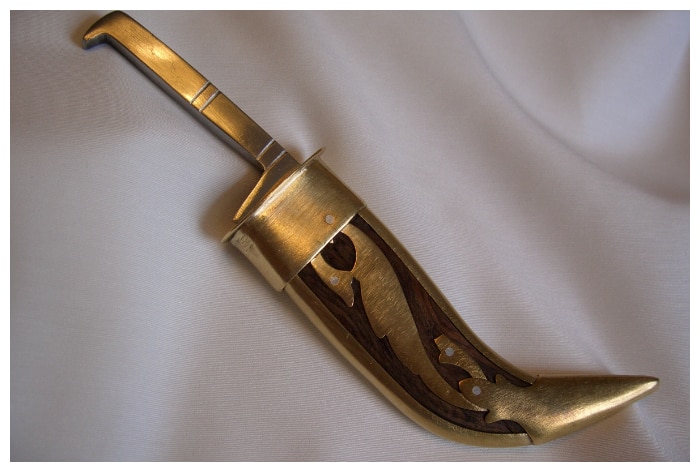
[ad_1]
The ruling by the state’s highest court came after Kamaljit Kaur Athwal took the state government to court last year.

Kirpan In Schools: The Supreme Court in Australia’s Queensland state has overturned a law banning Sikh religious dagger (Kirpan) on school grounds calling it “unconstitutional”.
The ruling by the state’s highest court came after Kamaljit Kaur Athwal took the state government to court last year, claiming that the ban discriminated against the kirpan — one of five religious symbols that Sikhs are supposed to carry at all times as part of their faith.
Ruling in Athwal’s favour, the state’s highest court found the legislation to be unconstitutional under the Racial Discrimination Act, ABC News reported on Thursday.
An initial court ruling last year had dismissed the suggestion that the ban on carrying knives was discriminatory. But this week, three judges in the Court of Appeal found that a section of the Queensland Weapons Act of 1990 — which bans carrying knives in public places and schools — is inconsistent with Section 10 of the Commonwealth Racial Discrimination Act of 1975.
In response, the Queensland Education Department said it is considering the implications of the court decision. “As this legal decision has just been handed down, the department will now consider any implications.”
Athwal’s lawyer was cited as saying by the ABC News that the court had a difficult task “to balance the human rights of individuals to practice their religion and express their faith with the human rights of student and teacher safety”.
“Today marks the day that members of the Sikh faith can practice their faith and positively participate without discrimination as proud members of their local school communities,” the lawyer said, adding that her client is pleased with the court’s decision.
What Is Kirpan
The kirpan is a curved, single-edged blade that Khalsa Sikhs are required to wear as part of their religious uniform (The 5 Ks), as prescribed by the Sikh Code of Conduct. It is commonly manifested as a dagger or knife in the present day.
According to the Sikh Rehat Maryada, “The length of the sword to be worn is not prescribed”. The sword was traditionally over 91 cm (3 feet) long. It is part of a religious commandment given by Guru Gobind Singh in 1699, founding the Khalsa order and introducing the five articles of faith (the five Ks) which must be worn at all times, the kirpan being one of five Ks.
Purpose Of Kirpan
Sikhs are expected to embody the qualities of a Sant Sipahi or “saint-soldier”, showing no fear on the battlefield and treating defeated enemies humanely.
Kirpans are curved and have a single cutting edge that can be sharp or blunt which is up to the religious convictions of the wearer. They vary in size and a Sikh who has undergone the Amrit Sanskar ceremony of initiation may carry more than one. The Kirpans must be made of steel or iron.
Debates Over Kirpan In Modern Times
In modern times there have been debates about allowing Sikhs to carry a kirpan that falls under prohibitions on bladed weapons, with some countries allowing Sikhs a dispensation.
Other issues not strictly of legality arise, such as whether to allow the carrying of kirpans on commercial aircraft or into areas where security is enforced.
Australia
In May 2021, the state of New South Wales imposed a ban on bringing any knives, including kirpans, onto school grounds after a 14-year-old boy allegedly stabbed a 16-year-old boy with his kirpan in a school in Sydney’s north-west on 6 May. After members of Sydney’s Sikh community spoke out and defended their children’s rights to bring religious items to school, the state’s Department of Education reversed this decision in August 2021 and implemented new guidelines around the bringing of kirpans with the following conditions:
- Kirpans must be smaller than 8.5 centimetres in length and must have no sharp points or edges
- Kirpans must only be worn under clothing
- Kirpans must be removed during sports
In August 2023, the state of Queensland repealed a previous ban on bringing knives to schools and other public places after Australian Sikh Kamaljit Kaur Athwal took the Queensland state government to court in 2022. The Supreme Court of Queensland found that the ban, which was stated in section 55 of the Weapons Act 1990 (Qld), contravened the Racial Discrimination Act 1975 (Cth).
(With inputs from agency and Wikipedia)

Don’t Miss Out on the Latest Updates.
Subscribe to Our Newsletter Today!

[ad_2]